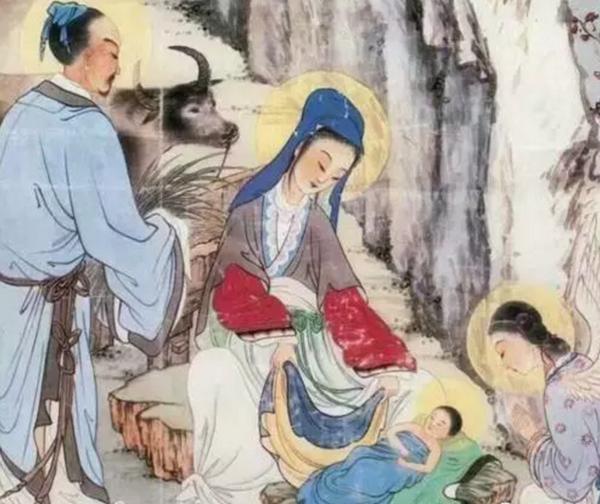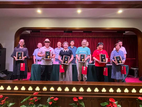Recently, Dr. Wu Dongri, a theological researcher, shared his thoughts on the interpretation of the Bible and its significance in intercultural contexts during a lecture titled "Interpreting the Bible with Eastern Thought and Its Hermeneutical Significance."
In his call to urge Chinese people to interpret the Bible with an Eastern way of thinking, Dr. Wu continued by bringing up the Liang Shuming-proposed cultural trichotomy, which contrasts Western, Chinese, and Indian cultures. Liang suggested that the Western path, representing life as it is, has led to scientific and democratic achievements. However, the Western emphasis on changing the natural environment to meet desires has reached its limit, shifting focus to human problems. Chinese culture, with its fundamental spirit of seeking harmony and compromise, offers a way out for world culture through its middle-of-the-road approach that adapts to changing circumstances. Indian culture, which places a strong emphasis on going backward and renouncing the material world in favor of spiritual life, will come after the revival of Chinese culture.
Dr. Wu emphasized that Liang’s cultural theory represents three different attitudes towards life in China, the West, and India, and there is no inherent superiority or inferiority among them. However, the historical choice of different cultures is a matter of timeliness.
“We often underestimate Chinese culture, but each culture has its own unique characteristics. Different types of culture dominate at different times, allowing sustainable development in human life,” he added.
The foundation of Western culture is maritime-city life (production-trade-commodities), and its representative ways of thinking in ancient times were geometry and mathematics. In modern times, it was physics, and in the postmodern era, biology has become the most representative, emphasizing rationality, thinking, and invariance, with nature as its foundation. The foundation of East Asian culture is agricultural life (village community-crops-land), focusing on society, personal cultivation, morality, the middle-of-the-road approach, and realism. Hebrew culture is based on nomadic life (pastoral community, animals, grassland streams, etc.), with God as its foundation (defining everything through its relationship with God), emphasizing a life of faith, community, verbal thinking, and laws.
He then mentioned that Eastern Biblical interpretation, similar to the Chinese translation of the Bible, is an "event" of the deep encounter between God's words and Chinese culture. It is a new way of expressing the gospel and a beautiful witness to the Holy Spirit's breakthrough work once again.
"The Bible is often groundbreaking, while humans are limited by their cognition, customs, and traditions. The Holy Spirit opens us up to new understandings," he said.
“What I want to challenge here is the use of Eastern thinking to interpret the Bible as a way to declare our departure from the Western mindset as the only approach to Biblical interpretation. The attitude of viewing Eastern or Chinese culture as inferior cannot contribute to theological construction.”
When asked about the relationship between Chinese culture and idolatry, the professor responded: "Many churches in Korea have a strong Confucian influence, but they do not openly acknowledge it. Confucian culture has subconsciously influenced us, and if we do not reflect on it, it will control us. Therefore, we should bring the topic forth to discuss the issue." "I believe we can discuss whether there is idolatry in any culture. However, when we truly discover the spirit of the Christian faith, these things can be negated," he added.
"I emphasized Chinese culture earlier because it is often marginalized or excluded in theological fields, with the assumption that Western culture is absolute. However, while Western culture has its strengths, it also has significant limitations. Therefore, what we should learn from the West is the ability to reflect and transform our culture, moving forward towards cultural innovation.”
- Translated by Charlie Li












